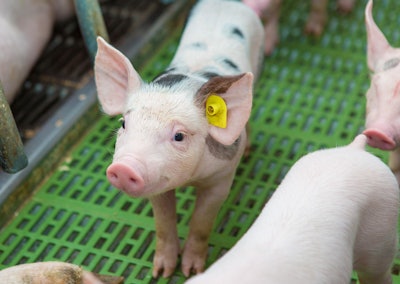
Scott Hays, president of the National Pork Producers Council (NPPC), testified before the House Committee on Agriculture’s Subcommittee on Livestock, Dairy and Poultry as part of its hearing on “A Review of Animal Agriculture Stakeholder Priorities.”
Throughout his testimony, Hays outlined the tough economic challenges for pig farmers with hog prices having moderated significantly since 2022. Current losses are largely due to record-high production costs that have increased by about 50% since 2020. On top of that, the industry has faced trade retaliation, supply chain issues, labor shortages and threats from foreign animal disease outbreaks and the U.S. Supreme Court’s recent unfavorable decision on California Proposition 12.
“This is putting a pinch on the pork industry and could drive consolidation at the farm level, as producers may be forced to exit the industry due to this economic reality,” said Hays. “We are committed to ensuring our consumers have food on the table, our pork producers and family farms are strong, and working with champions to address implications from unnecessary and unscientific measures that restrict producers’ ability to take care of their animals.”
Hays said NPPC is hopeful the 2023 farm bill fully funds programs that are vital to ensuring animal health across species.
“The growing threat of foreign animal disease, specifically African swine fever, is of particular concern, and farmers need the tools to prevent and rapidly respond to an outbreak, should one ever occur, said Hays. “The ‘three-legged stool’ of animal health laid out in the 2018 farm bill has set the course for what pork producers need in the upcoming farm bill.”
Hays outlined the additional perspective on the U.S. pork industry’s policy priorities that include:
- A one-year extension of Livestock Mandatory Price Reporting as the industry gathers input from producers in advance of a full reauthorization.
- NPPC opposes the proposed changes under the Packers and Stockyards Act and requested that USDA works with the industry to find meaningful reforms that provide greater transparency for pork producers.
- Absent meaningful trade access, increased funding for the Market Access Program and Foreign Market Development Program through the farm bill are critical to building commercial export markets for U.S. agricultural products.
- Address the ongoing labor shortage by improving and updating the H-2A visa program to grant access to year-round agriculture industries.











